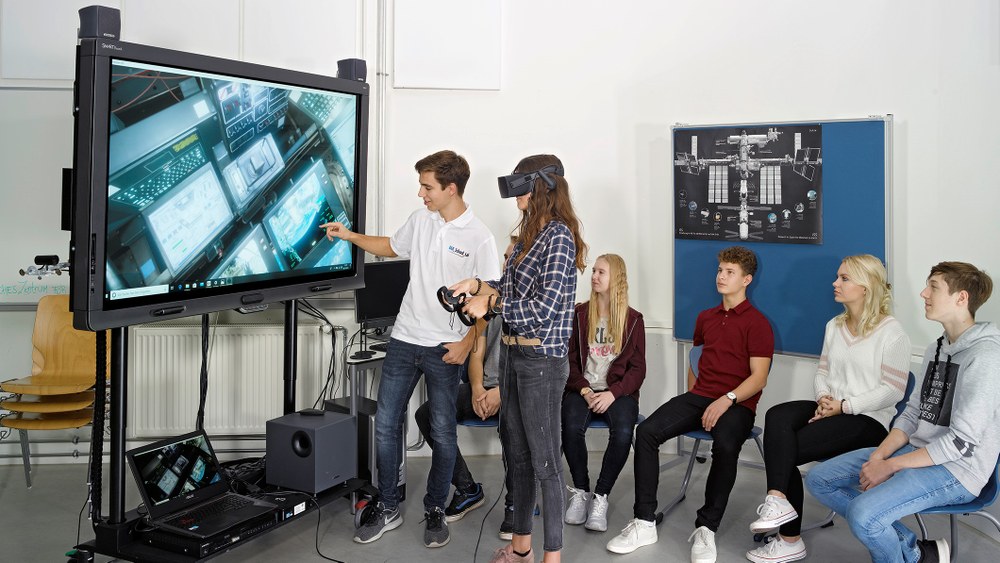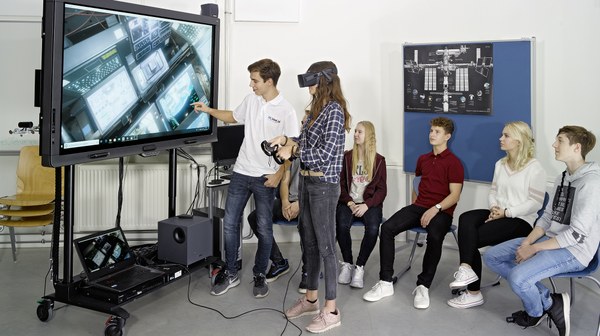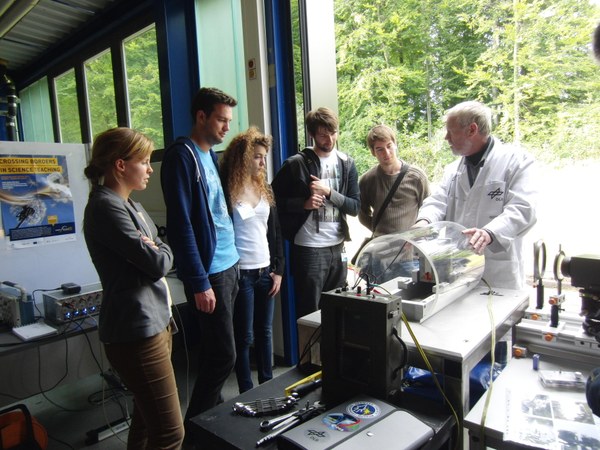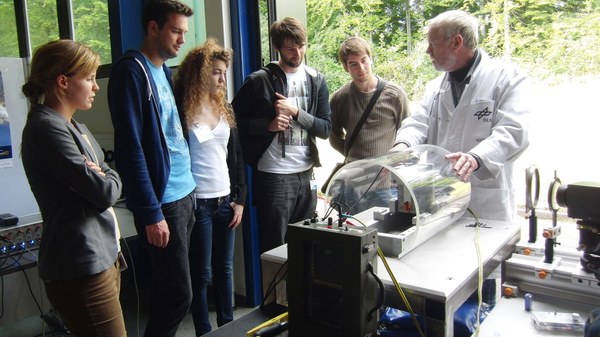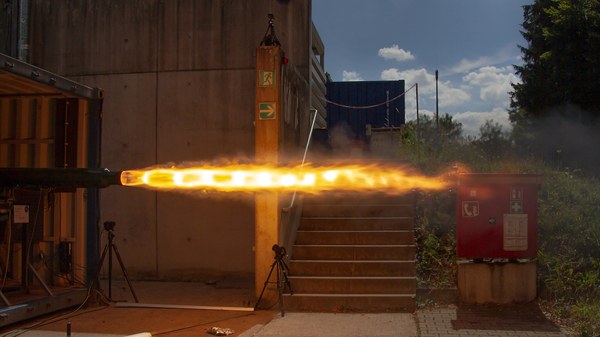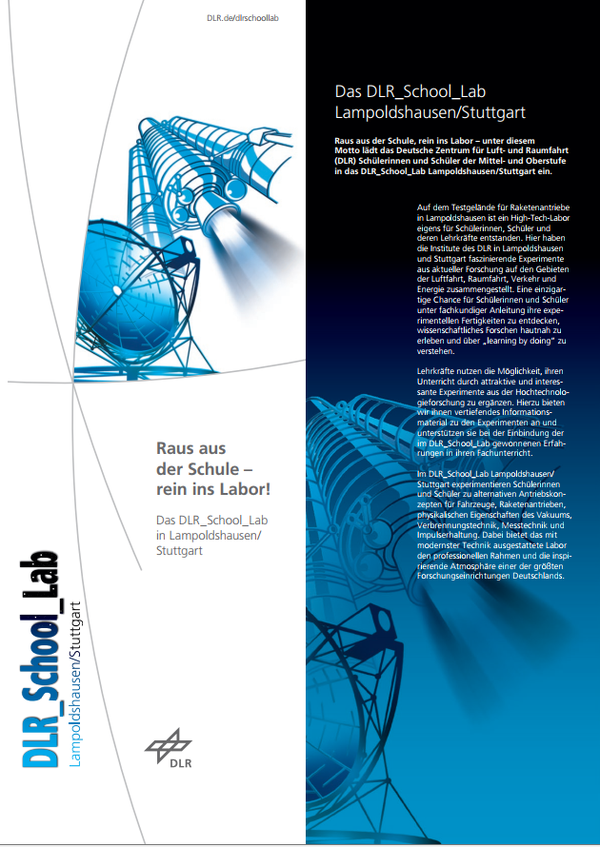Promotion of Young Talents
DLR attaches great importance to the promotion of young scientists. To achieve this, the DLR Institute of Space Propulsion implements the integrated concept of the DLR_Academic_Lab at university level and the DLR_School_Lab at school level. The DLR_Academic_Lab courses are aimed at university students. In addition to topic-related workshops, the offer primarily includes an annual DLR_Summer_School on the topic of space propulsion. The aim of the DLR_School_Lab is to arouse pupils' interest in science and technology at an early age. The offer is also aimed at children of primary school age in order to inspire girls in particular as early as possible.
At DLR_School_Lab Lampoldshausen / Stuttgart, school classes can carry out exciting experiments, for example on rocket propulsion and combustion research. Topics such as vacuum technology, materials research and optical measurement technology are also on the program here. Under the expert guidance of experienced scientists, the school classes conduct their own research into fundamental and pioneering experiments. The thematic focus of the experiments at DLR_School_Lab Lampoldshausen / Stuttgart is on space flight and rocket technology. Pupils learn about the positive effects this has on our everyday lives on Earth: The Ariane rockets, whose propulsion systems are tested here, transport satellites into space, which are used for environmental research or communication and navigation, for example.
By researching alternative drive concepts, young people can find out how the means of transportation of the future will have to be designed to have as little impact on the environment as possible. The efficient use of fossil fuels such as oil, coal and gas is also the subject of some hands-on experiments.
Students develop rockets independently
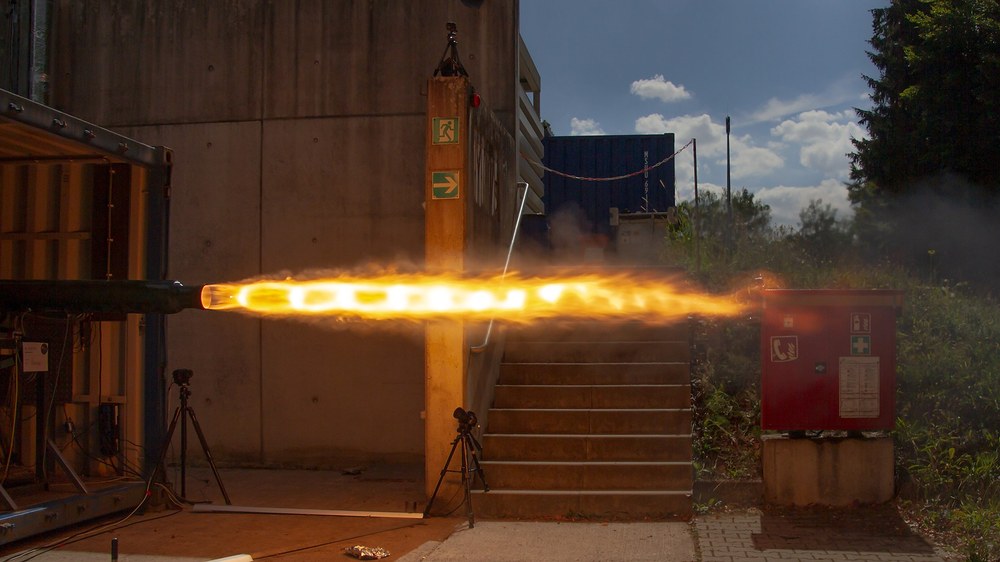
Planning and building your own rocket, including the propulsion system, and launching it from the Esrange space center near Kiruna in northern Sweden – the STERN (Student Experimental Rockets) program offers this special opportunity to students of aerospace engineering at German universities.
The students have three years to complete their project. Due to the complexity of the project, this is only possible in teams. The design and various engine tests are an important part of the student projects, particularly when developing the propulsion. These tests can be carried out in cooperation with the DLR site in Lampoldshausen. The M11 test stand complex operated by the Satellite and Orbital Propulsion Systems department, with its M11.5 student test field set up in 2013, enables students to work independently with propulsion systems. With the support of the experienced DLR team, students can test propulsion systems they have developed themselves on the test field.

